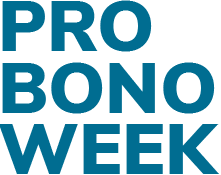Crisanta lived in a quiet farming community of indigenous Mayan people in Guatemala, but also based in the area was a gold mine. In 2005, the gold mine operator erected a powerline which local families claimed was installed on their land without consent.
Several months later, Crisanta, employed as a cleaner by the mining company, was among a group of workers dismissed allegedly for offering support to protestors against the mine. After three years of what was described as unbearable noise, disruption to life and damage to homes caused by underground explosions, Crisanta was desperate. She used a coat hanger and short-circuited the power lines above her home, resulting in a power failure that interrupted the mine’s operations.
Dozens of police and private security guards arrived. Crisanta refused them entry and she and seven other women created a human chain on the property. A mine manager made a criminal complaint against the women, leading to arrest warrants being issued against them.
They were helped by the Environmental Defender Law Center (EDLC), an organisation that defends the human rights of individuals and communities in developing countries that are fighting against harm to their environment. The EDLC claimed that the charges were disproportionate to the underlying incident and suspected they were being used to supress debate about the mine. They asked Advocates for International Development (A4ID) to find lawyers to help, and Clifford Chance LLP in London volunteered, travelling to Guatemala and providing pro bono support to EDLC.
With this pro bono assistance, representations were made to various parties, leading to the case against the women being suspended indefinitely. Crisanta and her community fought on and five years later, the mine closed.
